Sign up below to receive monthly eMHPrac newsletters and updates about the latest digital mental health news, events, and resources.

February 4th was World Cancer Day, promoting awareness and equitable access to cancer prevention and treatments globally. There is no doubt that receiving a cancer diagnosis, going through treatment, living with cancer or even having recovered from cancer can be highly distressing with unique associated physical, mental and emotional challenges. Our featured service for February is Finding My Way, an online tool to support the physical and mental health of people undergoing treatment for cancer.
Also in this February edition, we list a Back-to-School Digital Toolkit to assist the mental health of students and highlight our new series of Relationship Factsheets. We take a look at the latest installment of the WellMob newsletter, which features digital social and emotional wellbeing resources for Aboriginal and Torres Strait Islanders.
In this edition:
- Back-to-School Digital Toolkit – New and Existing Digital Resources for Students
- New eMHPrac Resource! – Relationship Factsheet Series
- WellMob – The Latest e-Newsletter
- See the eMHPrac team at these upcoming conferences
- Read the latest dMH research articles
- This month’s featured service: Finding My Way
Back-to-School Digital Toolkit
New and Existing Digital Resources for Students
Heading back to school can be a stressful time for young people, parents, caregivers and educators alike. Young children might be learning to adjust to being away from home, playing safely with others, or developing social relationships. Older children might be managing mental health issues at school, dealing with peer relationship challenges, alcohol or drug use, the pressures of study, or navigating pitfalls online. All while attempting to learn!
eMHPrac has compiled a miniature digital toolkit of new and existing resources that address the mental health needs of students heading back to school.
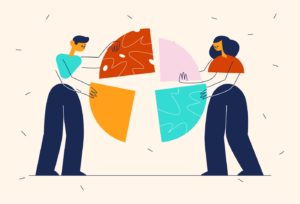
Introducing HeadStrong (Year 9-10)
A new resource from Black Dog Institute to help teachers educate high school students about tough topics.
HeadStrong is a new, free curriculum resource for teachers to improve high school students’ mental health literacy and emotional resilience. HeadStrong features five classroom learning modules on depression, bipolar disorder, help-seeking, supporting others and building resilience.
Visit HeadStrong here: https://www.blackdoginstitute.org.au/education-services/schools/school-resources/headstrong/
A selection of existing back-to-school digital resources are listed here:
- Be You
- A website supporting educators in developing positive, inclusive, and resilient learning communities which are supportive of good mental health.
- ReachOut Schools
- Resources and activities for students, educators, parents, and carers on a range of mental health topics and stressors such as exam stress and social media.
- The Allen Adventure app (3-8 years)
- A fun, interactive story about the new kid in class, Allen. Allen is an alien from another planet and wants to fit in and make friends, but he discovers it’s not always easy!
- Cool Little Kids Online (3-6 years)
- A program for parents of shy or anxious children that helps build parents’ knowledge and practical skills to increase their child’s confidence.
- Bullying. No Way!
- Resources and activities for parents and students on how to deal with and prevent bullying.
- ReachOut WorryTime
- An app to help control everyday stress and anxiety by giving you a place to store worries, and alerting you when it’s time to think about them.
- Reach Out and Recover (ROAR)
- Interactive tools to support people who have eating or body image concerns, and help them with their next steps towards recovery.
- This Way Up ‘Teen Mental Health Course’ (12-17 years)
- Free, online course for teens who are experiencing low mood or worry. Requires the supervision of a parent or carer and a prescription from a clinician.
- Positive Choices
- Videos, apps, and resources for teachers, schools, parents, and students on adolescent drug and alcohol use. Resources for CALD and Aboriginal and Torres Strait Islander peoples.
For more resources and factsheet on digital mental health resources for students, teachers, parents and caregivers head to the eMHPrac website Resource Library at https://www.emhprac.org.au/resources/
New eMHPrac Resource!
Relationship Factsheet Series
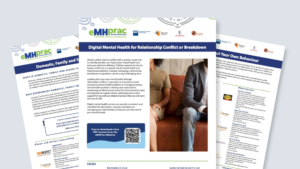
eMHPrac has released a new series of factsheets for people looking for information, online tools and phone/online counselling regarding their personal relationships. Relationship concerns can affect individuals’ mental health at any time, but holidays like Christmas or Valentine’s Day, anniversaries, or isolation due to COVID-19 can bring these issues to the forefront.
All relationships experience ups and down, whether it’s a romantic relationship, or a relationship with a family member or ex-partner. Digital mental health resources can be a great tool to provide support during difficult times or start to change behaviour for the long-term improvement of relationships. Our new factsheet series explores the role of digital mental health resources in supporting relationships and suggests a range of suitable, free, Australian, evidence-based services.
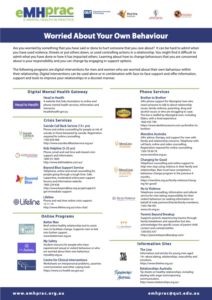
Worried About Your Own Behaviour
This factsheet provides brief information about how digital mental health resources can help people worried about their own violent or controlling behaviour within relationships. This factsheet suggests a range of digital interventions providing information, support and tools to assist someone to work on their own behaviour within their relationships.
View or download the factsheet at: https://www.emhprac.org.au/resource/worried-about-your-own-behaviour/
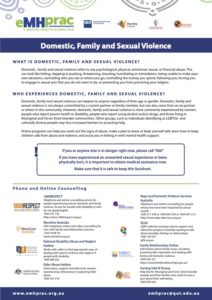
Domestic, Family and Sexual Violence
This factsheet provides brief information for people experiencing domestic, family, and sexual violence. It lists digital mental health resources that can help individuals identify signs of abuse, make a plan to leave or keep safe, and more. The factsheet suggests a range of suitable phone and online counselling services, information sites, apps and online programs.
View or download the factsheet at: https://www.emhprac.org.au/resource/domestic-family-and-sexual-violence/
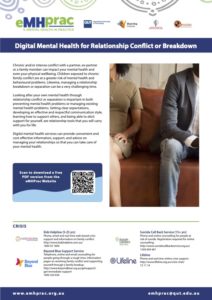
*New* Relationship Conflict or Breakdown
The newest factsheet in the series provides brief information about relationship conflict or breakdown, the effects it can have on families and suggests a range of digital mental health resources to help manage your mental health through relationship challenges.
View or download the factsheet at: https://www.emhprac.org.au/resource/relationship-conflict-or-breakdown/
Feel free to share and distribute widely!
WellMob Website for First Nations Clients
The Latest e-Newsletter
The WellMob website is a digital library of over 250 online resources for health practitioners to use with their Aboriginal and Torres Strait Islander clients.
Their e-newsletter provides subscribers with all the latest news on Indigenous-specific social and emotional wellbeing resources made for and by Aboriginal and Torres Strait Islander people. Each edition of their newsletter includes useful tips, and showcases apps, videos and other online resources made for and by First Nations health services and communities, and features an interesting digital resource from a member of the WellMob team. In this edition, WellMob project officer Angie Sheridan shares how she uses the online resource Dreamy: sleep stories from First Nations storytellers.

Yarn with a Worker – Angie Sheridan
Wiradjuri woman, mother of 2 Widjabul Bundjalung/Wiradjuri girls, WellMob Project Officer
“We use Dreamy Sleep Stories from First Nations’ Storytellers to wind down at the end of the busy day and ground ourselves at bedtime. We have created a bedtime ritual to feel quiet, calm, and connected to ourselves, each other, our culture, and country. We know that good sleep routines and being well rested are important parts of self-care.”
Check it out on the link: Dreamy: sleep stories from First Nations storytellers – All resources – WellMob. These sleep stories bring a tradition of storytelling as old as time in the digital space. The stories are grounded in connection to Country and provide listeners with a sense of calmness that may help with sleep difficulties.
Subscribe to WellMob’s newsletter below and find out more about Angie on the WellMob facebook page.
In case you missed them over the New Year’s break, don’t forget to check out the short animated videos produced to improve awareness about how the WellMob website can keep our diverse First Nations’ mob feeling strong and deadly!
WellMob: An Introduction
This short video describes the WellMob website, a digital library of wellbeing resources made by and for our mob including over 250 apps, podcasts, websites, videos, social media and printable wellbeing materials.
WellMob: Website Tour
This short video shows you how to use the WellMob website. Starting on the landing page, it shows the six main topics and steps through how to find digital wellbeing resources.
WellMob: Tips for Workers
A short video has tips for health workers on how to use digital wellbeing resources found on WellMob.
Please feel free to share these videos amongst your networks!
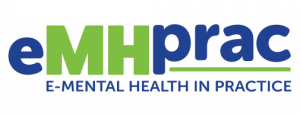
Catch us at these upcoming conferences

Frontline Mental Health Conference
15 – 16 March 2022, Gold Coast and Online
The Frontline Mental Health Conference is designed to develop the knowledge and skills of first responders in leadership positions, to actively promote positive mental health within organisations and improve mental health care. This year the conference theme is working together – exploring an integrated health and wellbeing approach, with the aim of sharing insights, resources, and strategies for a unified agency response to frontline mental health care.
Catch a presentation from eMHPrac Director Heidi Sturk on frontline worker attitudes to digital mental health since the pandemic. You can also find the eMHPrac team at our trade exhibit and pick up some of our resources.
To register for the conference or view the program, click the link below:
On our reading radar…
Paalimäki-Paakki K, Virtanen M, Henner A, Nieminen M, Kääriäinen M. Effectiveness of Digital Counseling Environments on Anxiety, Depression, and Adherence to Treatment Among Patients Who Are Chronically Ill: Systematic Review. J Med Internet Res 2022;24(1):e30077. URL: https://www.jmir.org/2022/1/e30077. DOI: 10.2196/30077
“Patients who are chronically ill need novel patient counseling methods to support their self-care at different stages of the disease. At present, knowledge of how effective digital counseling is at managing patients’ anxiety, depression, and adherence to treatment seems to be fragmented, and the development of digital counseling will require a more comprehensive view of this subset of interventions.
This study aims to identify and synthesize the best available evidence on the effectiveness of digital counseling environments at improving anxiety, depression, and adherence to treatment among patients who are chronically ill.
Systematic searches of the EBSCO (CINAHL), PubMed, Scopus, and Web of Science databases were conducted in May 2019 and complemented in October 2020. The review considered studies that included adult patients aged ≥18 years with chronic diseases; interventions evaluating digital (mobile, web-based, and ubiquitous) counseling interventions; and anxiety, depression, and adherence to treatment, including clinical indicators related to adherence to treatment, as outcomes. Methodological quality was assessed using the standardized Joanna Briggs Institute critical appraisal tool for randomized controlled trials or quasi-experimental studies. As a meta-analysis could not be conducted because of considerable heterogeneity in the reported outcomes, narrative synthesis was used to synthesize the results.
Of the 2056 records screened, 20 (0.97%) randomized controlled trials, 4 (0.19%) pilot randomized controlled trials, and 2 (0.09%) quasi-experimental studies were included. Among the 26 included studies, 10 (38%) digital, web-based interventions yielded significantly positive effects on anxiety, depression, adherence to treatment, and the clinical indicators related to adherence to treatment, and another 18 (69%) studies reported positive, albeit statistically nonsignificant, changes among patients who were chronically ill. The results indicate that an effective digital counseling environment comprises high-quality educational materials that are enriched with multimedia elements and activities that engage the participant in self-care. Because of the methodological heterogeneity of the included studies, it is impossible to determine which type of digital intervention is the most effective for managing anxiety, depression, and adherence to treatment.
This study provides compelling evidence that digital, web-based counseling environments for patients who are chronically ill are more effective than, or at least comparable to, standard counseling methods; this suggests that digital environments could complement standard counseling.“
Goldberg SB, Lam SU, Simonsson O, Torous J, Sun S (2022) Mobile phone-based interventions for mental health: A systematic meta-review of 14 meta-analyses of randomized controlled trials. PLOS Digital Health 1(1): e0000002. https://doi.org/10.1371/journal.pdig.0000002
“Mobile phone-based interventions have been proposed as a means for reducing the burden of disease associated with mental illness. While numerous randomized controlled trials and meta-analyses have investigated this possibility, evidence remains unclear. We conducted a systematic meta-review of meta-analyses examining mobile phone-based interventions tested in randomized controlled trials. We synthesized results from 14 meta-analyses representing 145 randomized controlled trials and 47,940 participants. We identified 34 effect sizes representing unique pairings of participants, intervention, comparisons, and outcome (PICO) and graded the strength of the evidence as using umbrella review methodology. We failed to find convincing evidence of efficacy (i.e., n > 1000, p < 10−6, I2 < 50%, absence of publication bias); publication bias was rarely assessed for the representative effect sizes. Eight effect sizes provided highly suggestive evidence (i.e., n > 1000, p < 10−6), including smartphone interventions outperforming inactive controls on measures of psychological symptoms and quality of life (ds = 0.32 to 0.47) and text message-based interventions outperforming non-specific controls and active controls for smoking cessation (ds = 0.31 and 0.19, respectively). The magnitude of effects and strength of evidence tended to diminish as comparison conditions became more rigorous (i.e., inactive to active, non-specific to specific). Four effect sizes provided suggestive evidence, 14 effect sizes provided weak evidence, and eight effect sizes were non-significant. Despite substantial heterogeneity, no moderators were identified. Adverse effects were not reported. Taken together, results support the potential of mobile phone-based interventions and highlight key directions to guide providers, policy makers, clinical trialists, and meta-analysts working in this area.”
This edition’s featured service…

Finding My Way
An online intervention that provides a convenient, user-friendly way to gain information and/or skills to improve physical and mental wellbeing during treatment for cancer.
About Finding My Way
Finding My Way is an online self-help coping program offering information, suggestions, and for support people who have recently been diagnosed with cancer and being treated with the aim of cure. The program was developed as part of a clinical trial for anyone who was going through cancer treatment, or had been diagnosed in the past 6 months, before being made publicly available for anyone with cancer.
The program offers 6 modules of information and interactive features, including worksheets, online activities, quizzes, relaxation, meditation, and personal note-taking. The program contents are relevant to users’ cancer diagnosis and treatment.
Who is Finding My Way for?
Finding My Way is open to anyone with cancer or undergoing cancer treatment however, it may be most helpful to those who have recently been diagnosed with early-stage cancer. The program is designed as self-help, and as such not aimed at people experiencing crisis situations.
Is there a cost to use Finding My Way?
There is no cost to access or register for Finding My Way.
How to access Finding My Way
Finding My Way can be accessed online at https://findingmyway.org.au/welcome and requires registration with a name, username, password and email address. Participation in the Finding My Way program involves;
- Completing an online survey at the time of registering.
- Completing 6 online modules.
- Completing a booster module one month after the main program has ended.
- Completing three further online surveys (after finishing the main program, after 3 months and after 6 months).



